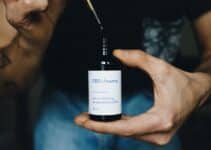Anxiety is a common mental health condition that affects millions of people worldwide. It is characterized by excessive worry, fear, and apprehension, and can significantly impact a person's daily life. While there are various treatment options available for anxiety, including therapy and medication, many individuals are turning to alternative remedies such as CBD oil. CBD oil, derived from the cannabis plant, has gained popularity in recent years for its potential therapeutic effects. In this article, we will explore the use of CBD oil as a potential treatment option for anxiety.
Key Takeaways
- Anxiety is a common mental health condition that can cause physical and emotional symptoms.
- CBD oil is a natural compound derived from the hemp plant that interacts with the body's endocannabinoid system.
- Research suggests that CBD oil may be effective in reducing anxiety symptoms, but more studies are needed.
- CBD oil may have potential benefits for reducing anxiety symptoms, including improving sleep and reducing stress.
- CBD oil can affect neurotransmitters in the brain, which may contribute to its anxiety-reducing effects.
Understanding Anxiety and Its Symptoms
Anxiety is a complex mental health condition that can manifest in different ways for different individuals. It is characterized by persistent feelings of worry, fear, and unease. Common symptoms of anxiety disorders include excessive sweating, trembling, rapid heartbeat, restlessness, difficulty concentrating, and sleep disturbances. These symptoms can significantly impact a person's daily life, making it difficult to perform everyday tasks or engage in social activities.
What is CBD Oil and How Does it Work?
CBD oil, short for cannabidiol oil, is a natural compound derived from the cannabis plant. Unlike THC (tetrahydrocannabinol), another compound found in cannabis that produces psychoactive effects, CBD does not cause a “high” sensation. CBD oil is typically extracted from hemp plants, which contain high levels of CBD and low levels of THC.
The extraction process for CBD oil involves using solvents such as CO2 or ethanol to separate the cannabinoids from the plant material. There are different types of CBD oil available on the market, including full-spectrum CBD oil, broad-spectrum CBD oil, and CBD isolate. Full-spectrum CBD oil contains all the cannabinoids found in the cannabis plant, including THC (although in trace amounts), while broad-spectrum CBD oil contains all the cannabinoids except THC. CBD isolate is the purest form of CBD, containing only the CBD compound.
CBD Oil and the Endocannabinoid System
The endocannabinoid system (ECS) is a complex network of receptors and neurotransmitters found throughout the body. It plays a crucial role in regulating various physiological processes, including mood, sleep, appetite, and pain sensation. CBD oil interacts with the ECS by binding to cannabinoid receptors, particularly CB1 and CB2 receptors.
CB1 receptors are primarily found in the brain and central nervous system, while CB2 receptors are predominantly located in the immune system and peripheral tissues. When CBD oil binds to these receptors, it can modulate the release of neurotransmitters and regulate various physiological functions. This interaction with the ECS is believed to contribute to the potential therapeutic effects of CBD oil in anxiety treatment.
Research on CBD Oil for Anxiety Treatment
There is a growing body of research exploring the potential benefits of CBD oil for anxiety treatment. Several clinical trials and studies have been conducted to investigate its efficacy and safety. While more research is needed to fully understand the effects of CBD oil on anxiety, preliminary findings are promising.
A study published in 2019 in The Permanente Journal examined the effects of CBD oil on anxiety and sleep in 72 adults with anxiety and poor sleep. The participants were given 25 milligrams (mg) of CBD oil capsules daily for one month. The study found that anxiety scores decreased in 79% of participants within the first month, and sleep scores improved in 66% of participants.
Another study published in 2015 in Neurotherapeutics reviewed the existing preclinical and clinical evidence on CBD oil for anxiety disorders. The authors concluded that CBD oil has potential as a treatment option for various anxiety disorders, including generalized anxiety disorder (GAD), social anxiety disorder (SAD), panic disorder (PD), obsessive-compulsive disorder (OCD), and post-traumatic stress disorder (PTSD).
Potential Benefits of CBD Oil for Anxiety Symptoms
CBD oil has shown potential in reducing anxiety symptoms and improving overall well-being. One of the main benefits of CBD oil is its ability to promote relaxation and calmness. It can help individuals feel more at ease and reduce feelings of worry and fear. This can be particularly beneficial for those with generalized anxiety disorder or social anxiety disorder, who often experience excessive and irrational worry in everyday situations.
In addition to reducing anxiety symptoms, CBD oil may also improve sleep quality. Many individuals with anxiety disorders struggle with sleep disturbances, such as insomnia or restless sleep. CBD oil has been found to have sedative effects, promoting a sense of relaxation and aiding in falling asleep faster and staying asleep longer.
Furthermore, CBD oil may have fewer side effects than traditional medications used to treat anxiety. Common medications for anxiety, such as benzodiazepines and selective serotonin reuptake inhibitors (SSRIs), can cause various side effects, including drowsiness, dizziness, nausea, and sexual dysfunction. CBD oil, on the other hand, is generally well-tolerated and has a low risk of adverse effects.
How CBD Oil Affects Neurotransmitters
Neurotransmitters are chemical messengers in the brain that play a crucial role in regulating mood, emotions, and anxiety levels. Imbalances in neurotransmitter levels can contribute to the development of anxiety disorders. CBD oil has been found to affect neurotransmitter levels in the brain, potentially contributing to its anxiolytic effects.
One neurotransmitter that is closely associated with anxiety is serotonin. Serotonin is often referred to as the “feel-good” neurotransmitter because it helps regulate mood and emotions. Low levels of serotonin have been linked to increased anxiety and depression. CBD oil has been found to increase serotonin levels in the brain by inhibiting the reuptake of serotonin, leading to improved mood and reduced anxiety.
Another neurotransmitter that plays a role in anxiety is gamma-aminobutyric acid (GABA). GABA is an inhibitory neurotransmitter that helps calm the brain and reduce anxiety. CBD oil has been found to increase GABA levels in the brain, promoting relaxation and reducing anxiety symptoms.
CBD Oil and Stress Reduction
Stress is a common trigger for anxiety, and finding ways to reduce stress levels can be beneficial for managing anxiety symptoms. CBD oil has been found to have stress-reducing effects, helping individuals cope with stressful situations more effectively.
One way CBD oil reduces stress is by modulating the release of cortisol, the primary stress hormone. High levels of cortisol can contribute to anxiety and other stress-related disorders. CBD oil has been found to reduce cortisol levels, promoting a sense of calmness and relaxation.
Additionally, CBD oil may help regulate the body's stress response by interacting with the hypothalamic-pituitary-adrenal (HPA) axis. The HPA axis is responsible for regulating the body's response to stress. CBD oil has been found to modulate the HPA axis, reducing the release of stress hormones and promoting a balanced stress response.
Side Effects and Risks of CBD Oil Use
While CBD oil is generally well-tolerated, it can cause some side effects in certain individuals. Common side effects of CBD oil include drowsiness, dry mouth, diarrhea, changes in appetite, and fatigue. These side effects are typically mild and temporary, but it is important to be aware of them when considering CBD oil as a treatment option for anxiety.
It is also important to note that CBD oil can interact with certain medications. It can inhibit the activity of enzymes in the liver that are responsible for metabolizing drugs, potentially leading to increased levels of these medications in the bloodstream. This can increase the risk of adverse effects or interfere with the effectiveness of certain medications. It is crucial to consult with a healthcare provider before using CBD oil, especially if you are taking any other medications.
Finding the Right Dosage for CBD Oil
Finding the right dosage of CBD oil can be challenging, as it can vary depending on individual factors such as body weight, metabolism, and the severity of anxiety symptoms. It is recommended to start with a low dose and gradually increase until the desired effects are achieved.
Dosing guidelines for CBD oil can vary depending on the product and concentration. It is important to follow the manufacturer's instructions and consult with a healthcare provider for personalized dosing recommendations. They can take into account your specific needs and help you find the optimal dosage for your anxiety symptoms.
Integrating CBD Oil into Your Anxiety Management Plan
CBD oil should not be seen as a standalone treatment for anxiety but rather as part of a comprehensive anxiety management plan. It is important to address anxiety from multiple angles, including therapy, lifestyle changes, and self-care practices.
CBD oil can be integrated into an anxiety management plan by incorporating it into a daily routine. It can be taken orally as a tincture or capsule, applied topically as a cream or lotion, or inhaled through vaporization. The method of administration may depend on personal preference and desired effects.
Combining CBD oil with other treatments, such as therapy or medication, may enhance its effectiveness in managing anxiety symptoms. It is important to work closely with a healthcare provider to develop an individualized treatment plan that incorporates CBD oil and other appropriate interventions.
In conclusion, CBD oil shows promise as a potential treatment option for anxiety. It has been found to reduce anxiety symptoms, improve sleep quality, and promote relaxation. CBD oil interacts with the endocannabinoid system and affects neurotransmitter levels in the brain, contributing to its anxiolytic effects. However, more research is needed to fully understand its efficacy and safety in anxiety treatment.
If you are considering using CBD oil for anxiety, it is important to consult with a healthcare provider. They can provide personalized recommendations, help you find the right dosage, and ensure that CBD oil does not interact with any other medications you may be taking. CBD oil should be seen as part of a comprehensive anxiety management plan that includes therapy, lifestyle changes, and self-care practices. With the guidance of a healthcare professional, CBD oil may be a valuable addition to your anxiety treatment regimen.
If you're interested in exploring the benefits of CBD oil beyond anxiety relief, you may want to check out our article on the best CBD for public speaking. Public speaking can be a nerve-wracking experience for many, and CBD has been found to help reduce anxiety and improve focus, making it a potential game-changer for those who struggle with this common fear. To learn more about how CBD can help you conquer your public speaking jitters, click here. Additionally, if you're a woman who experiences mood swings and PMS symptoms, our article on the best CBD for PMS mood swings might be of interest to you. Click here to discover how CBD can potentially alleviate these symptoms. Lastly, if you're looking for ways to support your bone healing process, our article on the best CBD for bone healing provides valuable insights. To read more about this topic, click here.
FAQs
What is CBD oil?
CBD oil is a natural oil extracted from the hemp plant. It contains cannabidiol (CBD), which is a non-psychoactive compound that has been found to have potential therapeutic benefits.
How does CBD oil work for anxiety?
CBD oil works by interacting with the body's endocannabinoid system (ECS), which is responsible for regulating various bodily functions, including mood, sleep, and appetite. CBD oil has been found to have anxiolytic (anti-anxiety) effects, which may help reduce anxiety symptoms.
Is CBD oil legal?
The legality of CBD oil varies depending on the country and state. In the United States, CBD oil derived from hemp is legal under federal law, but it is still illegal under some state laws. It is important to check the laws in your area before purchasing or using CBD oil.
What are the potential side effects of CBD oil?
CBD oil is generally considered safe, but some people may experience side effects such as dry mouth, dizziness, and fatigue. It may also interact with certain medications, so it is important to consult with a healthcare provider before using CBD oil.
How do I use CBD oil for anxiety?
CBD oil can be taken orally, sublingually (under the tongue), or topically. The dosage and method of use may vary depending on the individual and the severity of their anxiety symptoms. It is important to start with a low dosage and gradually increase as needed. It is also recommended to consult with a healthcare provider before using CBD oil for anxiety.




